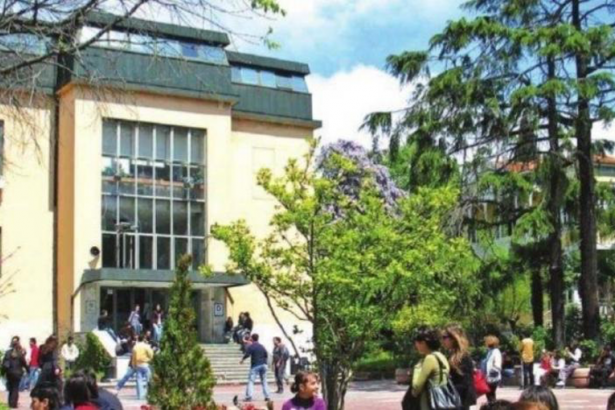University graduates in Turkey forced to start working in jobs on minimum wage

Presidency of the Republic of Turkey Human Resources Office has updated its database, ‘‘Uni-Veri’’, a national study that reveals the employment rates of the universities in the country on the basis of their departments, employment and employment rates in the first year, average wages, sectoral distribution of employment and quality mismatch, for the recent university preference period.
As the report issued by the Presidency used the data of the 2014-2019 period, graduates of open education faculties and graduates over 35 years of age were not included in the data.
52 percent of graduates of the Faculty of Aquaculture, 47 percent of graduates of the Faculty of Turkish Language and Literature, 45 percent of graduates of the Faculty of Agricultural Engineering, 43 percent of graduates of the faculty of Political Sciences, and 42 percent of Physics graduates could hardly find a job at least one year after their graduation, according to the report published by the Presidency.
UNIVERSITY GRADUATES FORCED TO WORK ON MINIMUM WAGE
In the report, which includes the salaries that young people receive if they can find a job after graduating from the university, it is stated that 39 percent of graduates of the Faculty of Economics can find a job in at least one year after graduation, and 68 percent of them start working with a minimum wage.
For the departments of Urban and Regional Planning whose one-third of graduates can hardly get a job after more than a year, this rate of starting to work in a job on minimum wage is 66 percent.
The rates of starting to work on minimum wage after graduation are 76 percent for Archaeology departments, 66 percent for the departments of Business, 61 percent for the faculties of Mathematics, 60 percent for Architecture departments and 62 percent for the departments of Geophysical Engineering.
ISLAMIC THEOLOGISTS EARN MORE AND FIND JOBS MORE EASILY COMPARED TO ARCHITECTS AND ECONOMISTS
The report also indicates that graduates of Islamic Theology departments start working in a shorter period than all the professions listed above and earn higher wages.
As those who graduated from the university departments related to Islamic and religious studies are in the highest ranks in employment within the public enterprises, more than half of the graduates of these departments get into a job in the first six months after their graduation.
Moreover, 65 percent of graduates of these departments, classified as ‘‘Islamic Studies’’, earn over 3 thousand Turkish Liras [~$430].
The group with the highest average starting salary and the rate of employment within the public enterprises are the graduates of the faculty of medicine, according to the report.
YOUTH UNEMPLOYMENT IN TURKEY
As the unemployment rate has been in the double digits in Turkey since June 2016, the labour force participation rate, which is 48.6 percent as of June 10, 2020, shows that a significant portion of the working-age population is out of labour force.
While the recent official statistics indicate that the youth unemployment rate is 24.6 percent ─ with a 7-percent rise in the last six years ─ in the country, the Turkish capitalism cannot offer any future to these segments of the population, particularly without providing any job opportunity for women and youth.
Unemployment amongst university graduates rose to 32 percent with a 10-percent increase during the COVID-19 pandemic, which means that one out of every three youth is currently unemployed in Turkey.



